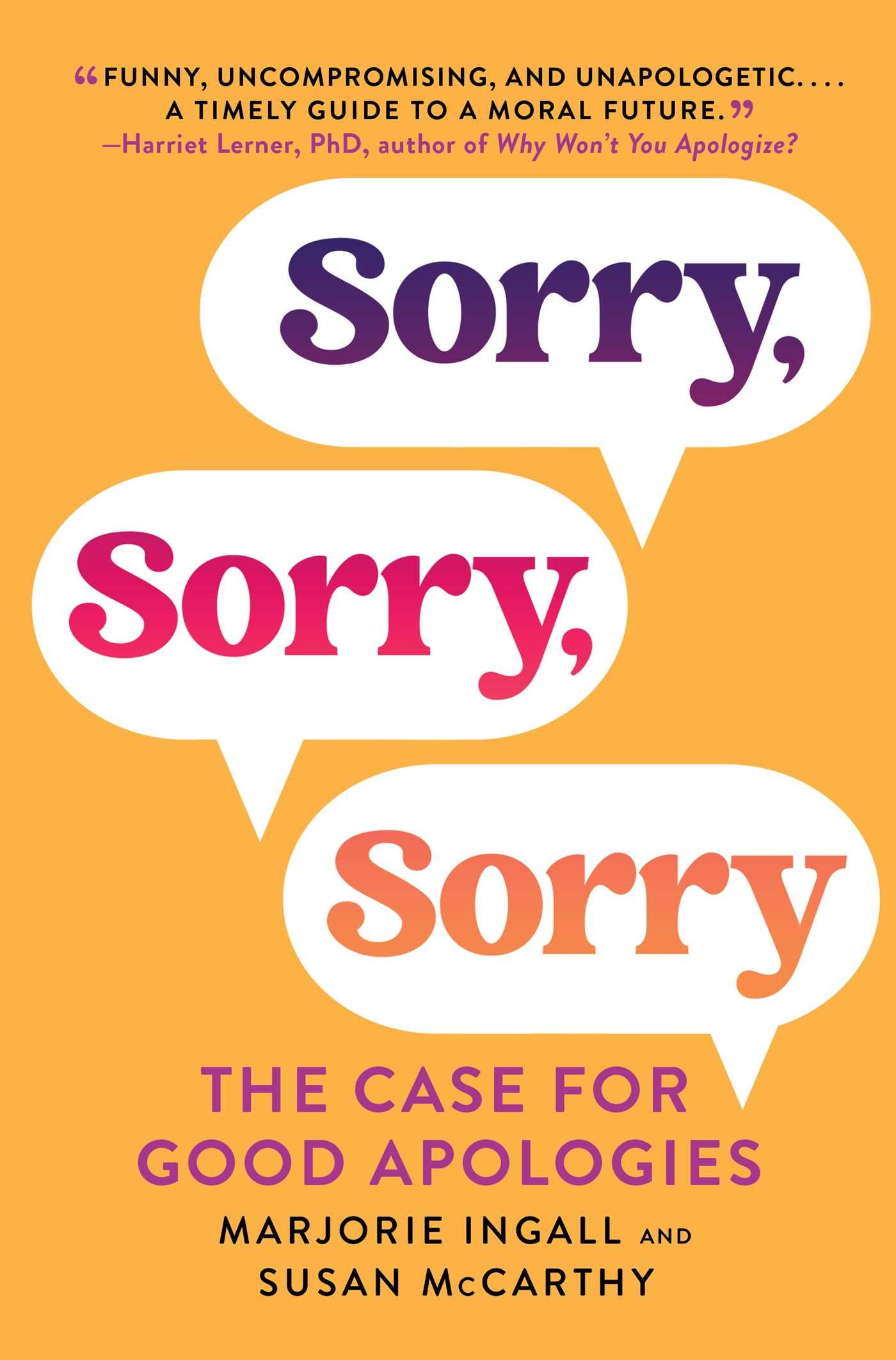Sorry, Sorry, Sorry: The Case for Good Apologies by Marjorie Ingall, Susan McCarthy
It’s a truth universally acknowledged that terrible apologies are the worst We’ve all been on the receiving end, and oh, how they make us seethe. Horrible public apologies—excuse-laden, victim blame-y, weaselly statements—often go viral instantaneously, whether they’re from a celebrity, a politician, or a blogger. We all recognize bad apologies when we hear them. So why is it so hard to apologize well? How can we do better? How could do better?
It’s a truth universally acknowledged that terrible apologies are the worst We’ve all been on the receiving end, and oh, how they make us seethe. Horrible public apologies—excuse-laden, victim blame-y, weaselly statements—often go viral instantaneously, whether they’re from a celebrity, a politician, or a blogger. We all recognize bad apologies when we hear them. So why is it so hard to apologize well? How can we do better? How could do better?
It’s a truth universally acknowledged that terrible apologies are the worst We’ve all been on the receiving end, and oh, how they make us seethe. Horrible public apologies—excuse-laden, victim blame-y, weaselly statements—often go viral instantaneously, whether they’re from a celebrity, a politician, or a blogger. We all recognize bad apologies when we hear them. So why is it so hard to apologize well? How can we do better? How could do better?
